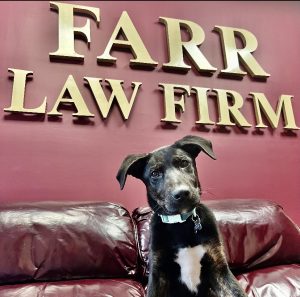 Dear Raider,
Dear Raider,
I am a single parent of an adult child with severe autism and I am considering all of our options. I heard about Microboards and Self-directed Support Corporations, but don’t know much about them. Can you provide any information about these? What are some of the advantages and challenges? Thanks for your help!
Mike Rowbords
—
Dear Mike,
Microboards and Self-directed Support Corporations (SDSCs) are essentially different names for the same concept – – small nonprofit companies that typically serve a single individual with a disability. They are a way of helping parents who have a child with a disability maintain the fullest, most independent life possible for their child after the parents are gone.
When it comes to Microboards and SDSCs, the person with the disability may be a board member of the corporation. The other members are people who know this person and can help the person navigate the complexities of life, enabling them to live as independently as possible. Board members can be family members, friends, social workers, or anyone else willing to be formally involved in the life of the person with a disability.
There are also existing organizations that make it easier to set up one of these organizations, especially if your loved one with special needs doesn’t have a strong existing social network. One such organization for Microboards in Virginia is Eli’s Village, which also runs the Virginia Microboard Association. Another similar organization in Maryland is Joshua’s house. Here is a good article about Joshua’s House . which can give you an idea about how a self-directed support corporation works.
What is Eli’s Village?
Eli’s Village provides comprehensive and holistic special needs planning to families. At the Farr Law Firm, we can work with you and them to coordinate the legal, asset, and family plans to provide positive outcomes for the entire family. Read more about them here.
What is Joshua’s House?
Joshua’s House was created to deliver support to Joshua, an adult with disabilities, to live successfully in his community. Similar to Eli’s Village, it provides custom designed supports for only one person, Joshua Golden, but it can help serve as a model for others.
Advantages and Challenges of Microboards
One of the main advantages of a Microboard in Virginia, in particular, is the ability of the organization to accept loans from the Virginia Housing Development Authority for the purchase of a home for the disabled person for whom the Microboard has been created. In addition, with its shared responsibility, Microboards place less dependence on siblings, who may live in another part of the country or may be unable to provide full-time help. Microboards are more personal than naming public guardians and, since the Microboard has had ongoing involvement with the individual with a disability, transitions can be smoother upon the parents’ passing.
Among the challenges is that Microboards and SDSCs can be hard to form. Family members may have trouble finding individuals who are willing to put in the time and accept the responsibility. If the individual and his or her family have ties to the community — for example via a religious organization, neighborhood group, or a local business — it’s easier, because they’re asking people to deepen a relationship that already exists.
For more details about Microboards and SDSCs, please click here to read more on the Farr Law Firm website. For assistance with disability planning, special needs trust, guardianship, etc., please contact the Farr Law Firm to set up an initial consultation.
Hope this helps!
Raider
Print This Page











